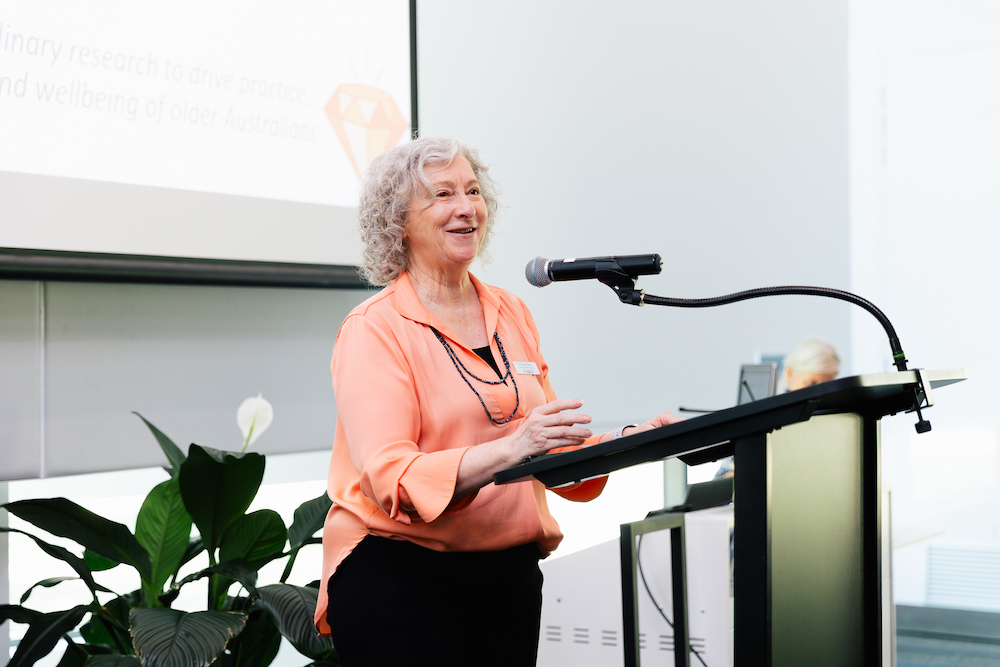The University of Canberra has established the Centre for Ageing Research and Translation (CARAT) to improve the health and aged care services available to older people.
CARAT’s research projects focus on dementia and cognition; innovative models of care; and workforce.
Research spans a wide range of disciplines, including epidemiology, nursing, economics, social science, public health, policy analysis, dietetics, food and human nutrition, physiotherapy, pharmacy, occupational therapy, speech pathology, optometry, psychology, and exercise science.
“The majority of older Australians live in their own homes, independently caring for themselves and their households,” said the Centre’s director, Distinguished Professor Diane Gibson, a national and international authority on ageing and aged care.
“Many are active participants in their communities through both paid and unpaid work.
“Older people deserve healthcare and, where needed, home-based aged care that supports them to continue living full, meaningful and rewarding lives in their community. And it is the same for older people living in residential aged care.
“This is achievable when we have a highly skilled workforce of health professionals who recognise the value of older people in our society and the importance of empowering them to live their best possible lives and continue to participate and contribute to the level they desire.”
The Centre is the culmination of work undertaken by members of the University’s Ageing Research Group, several of whose studies have already proven their effectiveness.
Such as Sustainable Personalised Interventions for Cognition, Care and Engagement (SPICE), a 12-week post diagnostic and multidisciplinary allied health program for people living with dementia and their partners, conducted in collaboration with Canberra Health Services.
CARAT is also driving the Clinical Placements with Older People (CPOP) program, a Commonwealth-funded initiative with three partner universities, aimed at increasing the quality and quantity of nursing clinical placements with older people, and boosting the recognition of gerontological nursing, in terms of both skills and career pathways.
“The primary health care workforce is ideally placed to maximise the functional health of older people, whether by prevention, maintenance, rehabilitation or reablement,” Professor Gibson said.
“Hospitals and residential aged care also have an important role to play in each of these areas and we need to empower all health professionals who work with older people by providing the skills, resources and care environments that they need to do their best work.”
CARAT was launched at the University of Canberra on Thursday, attended by University colleagues, ACT community members, members of the ACT Legislative Assembly, and partners across the health, aged care and advocacy sectors.
“Our work is already deeply embedded in the Canberra community through collaborations with healthcare providers across the ACT and broader Southern NSW region,” Professor Gibson said.
“We look forward to further opportunities for our work to have a greater impact in improving the lives of older people across Australia and the world.”



